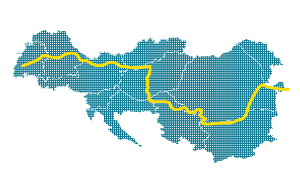H2020
Call identifier:
CE-SC5-08-2020: Raw materials policy support actions for the circular economy: expert network on Critical Raw Materials
Type of funding:
Purpose of the call :
In order to secure the sustainable access to primary and secondary raw materials, including metals, industrial minerals, construction raw materials, wood, and particularly Critical Raw Materials (CRMs) for the EU economy, there is a need to tackle a number of specific non-technological challenges at local, regional, national, EU and global levels.
Illegal shipments of waste, both within the EU and to non-EU countries, and poor recycling have adverse effects on human health and the environment, create unfair competition for law abiding operators and give rise to the loss of valuable resources in the case of poor or no treatment. However, port authorities and enforcement authorities have limited resources to control the ever increasing amount of material shipped and this without blocking normal traffic. In addition, at the moment there is no distinction in customs codes between “new goods” and “second hand goods” which implies that illegal waste shipments are often disguised as “second hand goods”.
Currently, at most only one third of waste wood is recycled, the rest being landfilled or incinerated and there are great differences between Member States in wood recycling performance. Increasing production costs combined with stagnating product prices in recent years have put pressure on the profit margins of the EU woodworking industries, mostly dominated by SMEs. There is a need for higher resource efficiency and increased use of recycled wood in wood processing that can provide measurable improvements in company profitability.
Requirements for responsible sourcing in the raw materials value chain have recently been strengthened in one aspect by the new EU Conflict Minerals legislation. However, the need for the industry to engage in responsible sourcing and responsible business conduct and to perform relevant due diligence goes beyond legislative obligations – it is rooted in the growing expectations of consumers, civil society, governments and procurement managers (buyers). While it is very difficult for individual operators to meet such expectations due to the limited availability of the necessary information, downstream industries increasingly require all operators in their supply chain to address risks by performing due diligence. Responsible sourcing of raw materials is becoming a new business reality; in the short term it may offer a competitive advantage to frontrunners and in the long term, it could become a necessary "license to operate" and, given the global character of today's supply chains, it is also a way to be integrated in global supply chains.
Minimum and maximum financial support:
up to EUR 3 million
Eligible applicants:
See Annex A, B, C of the Work Programme
More information about the Program and/or Call:
Application deadline :
Deadline: 27 February 2018 17:00:00Deadline: 19 February 2019 17:00:00
Country:
EU
Country Scope:

